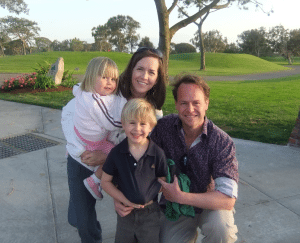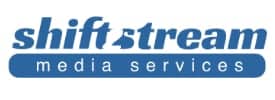- About
- Members
- Sponsors
- Subcommittees
- About Our Subcommittees
- Technology Group 3
- Implementation Team 1 – Advanced Emergency Information
- Implementation Team 2 – India
- Implementation Team 3 – ATSC 3.0 Conformance
- Implementation Team 4 – Brazil
- Implementation Team 5 – Tower Network
- Implementation Team 7 – Caribbean
- Implementation Team 8 – Automotive
- Planning Team 4 – Future Broadcast Ecosystem Technologies
- Planning Team 5 – Automotive Applications
- Planning Team 6 – Global Recognition of ATSC 3.0
- Planning Team 9 – Sustainability
- Technical Documents
- News
- Events
- Spotlight ATSC 3.0
- Contact Us
- Member Login
- Member Meetings
- Advanced Search
Search Site
Member Links
- About
- Members
- Sponsors
- Subcommittees
- About Our Subcommittees
- Technology Group 3
- Implementation Team 1 – Advanced Emergency Information
- Implementation Team 2 – India
- Implementation Team 3 – ATSC 3.0 Conformance
- Implementation Team 4 – Brazil
- Implementation Team 5 – Tower Network
- Implementation Team 7 – Caribbean
- Implementation Team 8 – Automotive
- Planning Team 4 – Future Broadcast Ecosystem Technologies
- Planning Team 5 – Automotive Applications
- Planning Team 6 – Global Recognition of ATSC 3.0
- Planning Team 9 – Sustainability
- Technical Documents
- News
- Events
- Spotlight ATSC 3.0
- Contact Us
- Member Login
- Member Meetings
- Advanced Search
Someone You Should Know…
Posted on April 2, 2015 in ATSC News
Winston Caldwell, 21st Century Fox
Winston Caldwell is Vice President, Spectrum Engineering and Advanced Engineering, for 21st Century Fox’s Fox Networks Group.
Caldwell began his career in television with News Corp in 2000, working as an engineer for its Research & Development group, known at that time as News Technology Group. He started out developing RF propagation modeling applications for help in the DTV Maximization process.
In his current role, Caldwell is involved with the exploration of new broadcasting opportunities including the deployment of ATSC A/153 technologies through the Dyle mobile TV initiative and, most recently, development work on the ATSC 3.0 next-gen TV broadcast standard. Caldwell is also an active participant in the ITU, IEEE, NAB, NABA and SMPTE, primarily to maintain understanding in the changing world of frequency spectrum technologies and policies. He has provided technical expertise in the determination of compatibility requirements between the established broadcasting services and unlicensed TV band, ultra-wideband, power-line transmission and IMT-Advanced devices.
Caldwell earned a Bachelor of Engineering degree in Electrical Engineering from Vanderbilt University and a Master of Science degree in Electrical Engineering from the University of Southern California. He is a licensed Professional Engineer (P.E.) in the state of California.
Active ATSC Participation
“Several Fox representatives are very involved in all levels of the ATSC,” Caldwell says. “Though I’ve been an implementer of ATSC systems and I’ve had strong understanding of its standards and practices for years, I’ve only recently begun participating in the development of new projects of the ATSC, starting with TG3.” Caldwell currently serves as Vice-Chairman of the ATSC TG3/S32-3 ad-hoc group, which has the responsibility of defining the waveform of the ATSC 3.0 physical layer.
“I am probably biased, but of all the important groups I consider S32-3 to be the most elemental, fundamental, and important component of this new standard. Aside from S32-3, I also try to be actively involved in most of the many other groups within TG3,” he continues.
Benefits of Membership
Caldwell said he has found that a more complete understanding of the ATSC systems comes with participation.
“I’ve discovered that many in our industry aren’t aware of the capabilities that are available through the use of current ATSC systems, and the new service opportunities that will be available through newly developing ATSC systems,” he notes. “The most effective means to make available a capability of interest in a new system, or a new revision of a system, is to participate. Exciting development has been happening, and it’s continuing. The ATSC should not be thought of as a singular, static, or fixed system – nor should the offerings of our industry.”
Caldwell says that early on he was surprised to learn about the makeup of ATSC contributors. “The membership is a diverse group made up of individuals who are very enthusiastic about applying technological advancements to enhance the broadcasting system,” Caldwell says. “It is greatly important for non-broadcasters to participate because there is an essential need for expertise from the consumer electronics industry and others. But it’s also important for broadcasters to participate to inform the ATSC what features are important and what will be utilized in the future.”
Sports and Family
Beyond his work with Fox, ATSC and other organizations, Caldwell enjoys a variety of activities, including watersports, snow sports, tennis, golf, and music. “Nowadays, I spend almost all of my time outside of work with my family.” Caldwell and his wife, Margaret, live in Los Angeles with their children Patrick, 7, and Charlotte, 5.
Posted in ATSC News
News Categories
News Archives
Subscribe
Subscribe to The Standard, our monthly newsletter. Learn More
Join ATSC
ATSC is a membership organization with both voting and observer categories. Voting members include corporations, nonprofit organizations, and government entities, and they participate actively in the work of ATSC. Observers are individuals or entities not eligible to be a voting member.
Subscribe to our Newsletter
Subscribe to The Standard, our monthly newsletter, to stay up-to-date with ATSC news and events around the world.
Site Links
Contact Us
Advanced Television Systems Committee, Inc.
1300 I Street NW, Suite 400E
Washington, DC 20005
Do you have questions about ATSC?
About ATSC
The Advanced Television Systems Committee, Inc., is an international, non-profit organization developing voluntary standards and recommended practices for digital terrestrial broadcasting. ATSC member organizations represent the broadcast, broadcast equipment, motion picture, consumer electronics, computer, cable, satellite, and semiconductor industries. ATSC also develops digital terrestrial broadcasting implementation strategies and supports educational activities on ATSC standards.
© 2024 ATSC






































